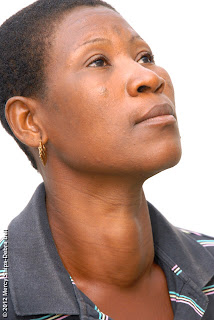The countries of West Africa are among the poorest in the world. Life is much different than in developed nations. For example, in Norway, the average life expectancy is 81 years. In contrast, in Togo, a West African developing country, the average life expectancy is only 57 years.* Both countries are similar in size of population. The reason why life is cut so cruelly short in West Africa comes down to two hard realities: household income and access to health care.
Household income provides the means to feed, shelter and clothe a family. In Norway, the average family gets by on a stable daily income of about $170 per person. In Togo, a family survives on a daily income of $2.13 per person. Sadly, the income for almost forty percent of families in Togo is even less – only $1.25 per person.*
Living on a meager income can have disastrous consequences. Poor nutrition, unsafe water and inadequate sanitation lead to compromised health and reduced stamina. There is scant fortitude to bounce back from the myriad of ailments that plague the poorest of the poor.
The second blow to life expectancy in countries like Togo comes from limited or no access to adequate health care. Using Norway again as a comparison, there are about 20,000 doctors for the 5 million people who live there. In Togo, there are only 318 doctors for about 6 million people.* And, those doctors often work without adequate training, equipment or diagnostic tools.
Collaborating with qualified local and international partners, Mercy Ships offers programs to support developing nations that are striving to make health care accessible for all. Since its beginning, Mercy Ships has helped more than 2.35 million direct beneficiaries and has provided over $1 billion in medical services and materials.
Mercy Ships is fully operational, thanks to significant donations of state-of-the-art diagnostic and testing equipment for the hospital. One remarkable and faithful donor is Abbott. Abbott’s contributions include Cell Dyn 1800 Hematology Instruments, FreeStyle Lite Glucose Meters, and iStat instruments. The equipment came bundled with the added generous donation of testing supplies, controls, and calibrators – along with maintenance and training support. All of these vital donations directly benefit West African men, women and children who desperately need medical care.
For example, the Cell Dyn 1800 Hematology Instruments are used in virtually every program. They are used to screen patients before, during and after surgery. The instruments can indicate if infection is present, if the patient is anemic and if the patient has an adequate clotting mechanism for surgery. During surgery, the Cell Dyn will tell the surgical team how much blood has been lost and if the patient needs a blood transfusion. Since the Mercy Ships crew functions as a “walking blood bank,” the instruments are also pivotal in the blood bank process!
Thousands of Mercy Ships patients have benefited from Abbott's instruments. Kossi Hlonvo, a budding entrepreneur, came to the Mercy Ships patient screening in desperate need of medical care. He suffered from a large facial tumor that had been growing since 2005 and threatened to entirely block his air passage. For Kossi, it was a miracle to be selected at the screening for further tests.
One of the important tests that Kossi needed in order to be accepted for surgical treatment was the blood analysis performed by the Abbott Cell Dyn 1800 Hematology Instrument. The speed and accuracy of this hospital workhorse confirmed the precious “all clear” for Kossi to receive a surgery date. Kossi was jubilant.
Another Mercy Ships beneficiary of the generosity of Abbott is little Clement Johnson, a three-month-old boy born with a cleft lip. This condition would be corrected at birth in the developed world, but often remains uncorrected in developing countries. Clement’s mother, Grace, was overjoyed when she was told that her son was a candidate for a free surgery. All she had to do was to bring Clement to the
Africa Mercy for further tests.
When Clement arrived at the hospital in the arms of his mother, he was immediately given a blood test to confirm his ability to withstand surgery. Using the Abbott Cell Dyn 1800, the necessary blood analysis was completed, and a loud “Hurrah!” from Grace confirmed that Clement would soon have his cleft lip repaired. Within a few days, Clement had a restored lip
. . . and the ability to breathe and eat normally.
The FreeStyle Lite Glucose Meters are another essential tool in the Mercy Ships medical arsenal. One important use relates to eye care. Whenever eye conditions raise the specter of the possibility of diabetes, the glucose meters provide a quick and accurate diagnosis with superb certainty.
Another instrument, the iSTAT system, is especially valued and appreciated for rapid response purposes in the Mercy Ships intensive care unit. It enables patient-side blood testing, so that health care professionals can access real-time, lab-quality results within minutes, rather than hours.
In the words of Dr. Gary Parker, Medical Director of the
Africa Mercy: “The hope and healing that Mercy Ships offers to the poorest of the poor owes a huge debt of gratitude to Abbott. Thank you for helping to give our mission a truly ‘state-of-the-art’ capacity.”
* The World Health Organization
Story by Joanne Thibault
Edited by Nancy Predaina
Photos by John Rolland










.jpg)
.jpg)
.jpg)
.jpg)
.jpg)
.jpg)
.jpg)
.jpg)
.jpg)
.jpg)
.jpg)




























